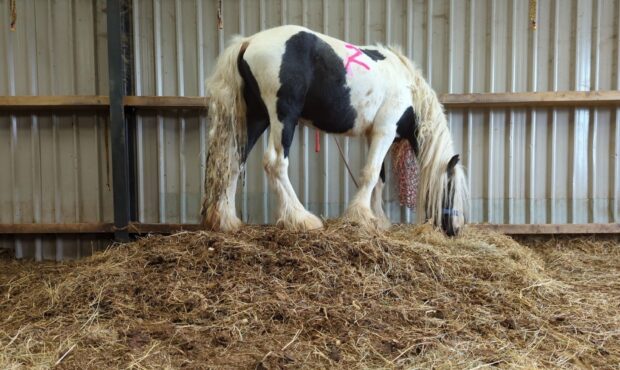Staff at a major equestrian centre in Scotland have hit back at claims that the welfare of their horses was compromised last week when the business went into administration.
On Friday, 13 February, administrators were called in to Kingsbarn Equestrian Centre, near Glasgow. The following day, horse feed merchants, who had not been paid, collected their stock — prompting press reports that the horses were left without food.
But centre manager Debbie McCormack told H&H the welfare of Kingsbarn’s 65 horses was never in danger.
“Suppliers did come up to remove stock but we had some emergency supplies and administrators made arrangements for horse feed, hay and bedding to be delivered early Monday morning,” she said.
“If their welfare was in danger I would have paid from my own pocket — the horses come first.”
The Times reported that an “emergency operation” had started to rescue “scores of horses left without food”.
But British Horse Society (BHS) Scotland, one of the charities reported to have been called in to help, denied needing to take any action.
“Acting on concern from the public, our welfare officer did visit — but happily help wasn’t necessary,” said development officer Helene Mauchlen.
The Scottish SPCA also visited Kingsbarn last week.
“We have no animal welfare concerns and the administrators have assured us that the horses’ needs will continue to be met,” said chief superintendent Mike Flynn.
The centre cost £10million to build and opened in 2007. The 90-acre site encompasses 165 stables, a riding school, livery yard, training and show centre.
But in less than two years of operation, it has been dogged with problems. Last spring, former manager Ernest Dillon vowed to take legal action against owner Stuart Aitken, for unfair dismissal (news, 6 March 2008). His case was heard in December, and he is awaiting an outcome. And in May, Kinsgbarn suffered a strangles outbreak.
“It would be such a big loss to Scotland for Kingsbarn not to be here,” said Ms McCormack.
“A few staff have been let go, but we are still operating.”
Administrators Tenon Recovery said that “cash flow problems and a lack of available funding” had resulted in the company being placed in administration, but added that it planned to continue trading with a view to obtaining a sale.
This article was first published in Horse & Hound (26 February, ’09)



